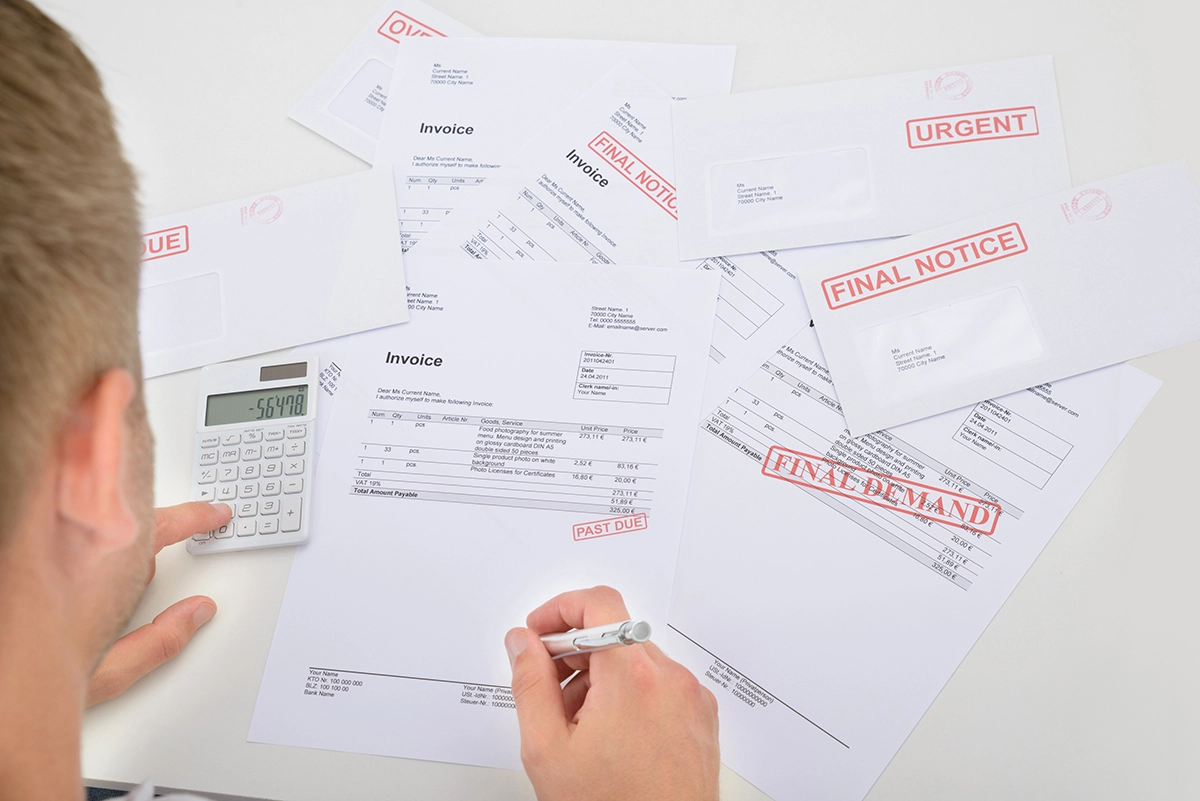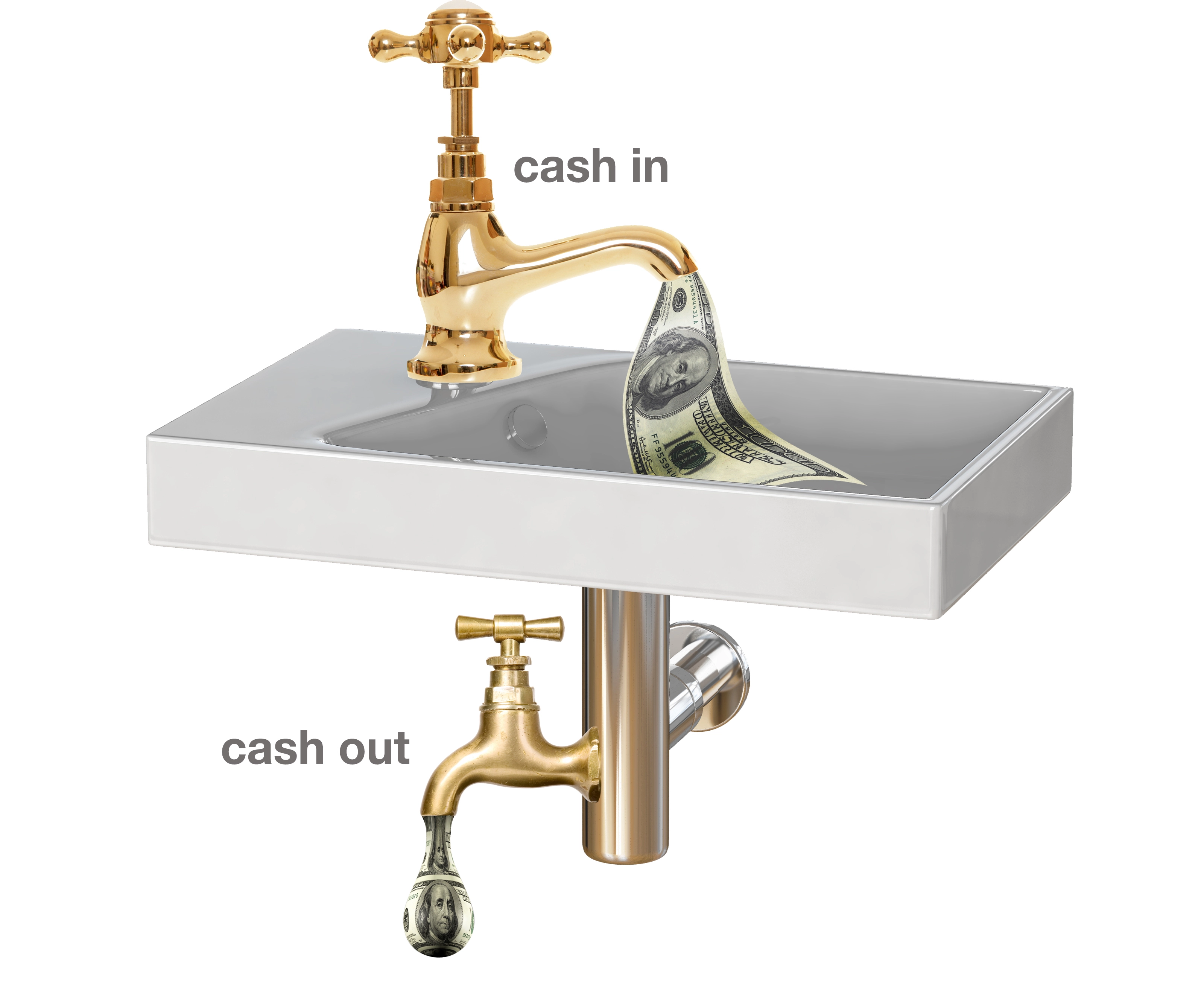Most employees are honest. However, when faced with stressful situations, even honest people can do things that are wrong, most notably stealing. If you don’t have systems in place to prevent theft by employees, you won’t beable to control it once it starts. Worse yet, you won’t even know it’s going on. Stealing from an employer becomes easier each time an employee gets away with it. Before you know it, you’re out thousands of dollars.
6. Have a sign-off policy for cash orcheck payments. The person receiving the cash/checks notes that it was received on the invoice. Why? This true story explains why: A company owner noticed a checkflying around in the wind in the parkinglot. He picked it up and saw it was written to his company for a completed job. The company owner put the check in his desk drawer, curious to see what would happen. A few days later his book keeper came to him and said that a technician turned in a check for payment on a job, but that he didn’t have the check any more. However, the check wasn’t attached to the service ticket when the book keeper received it. The book keeper didn’t wan tto accuse the technician of lying and didn’t want to call the customer to make sure she had paid because this would look bad for the company.The owner pulled the check out of his drawer and was relieved that the bookkeeper was honest enough to come to him with the issue. From that day forward staplers were issued, and all paper payments were stapled to the invoices.This situation could have been avoided with a sign-off policy, which documents the last person who handled payment. This lets you see the flow of checks and cash from the customer, tothe employee, to the office. This protects honest employees, too, who turn in checks that go missing later.
7. Check deposits on the bankstatement against deposit slips. An owner of a flower shop receivedcash, checks, and credit cards for payment. The “bookkeeper” going to the bank each day changed the deposit slips so that only the checks and credit card slips were deposited. She pocketed the cash. It took about six months to catch her because her books were not in good shape either. To cover up her stealing, the bookkeeper would change the deposit slips and the books to reflect lower sales. This was revealed one week when they had large cash deposits, and the owner started adding the sales up in her head. The books didn’t match, and she started digging. Make sure there is a receipt that lists the deposits singly. You’ll see the cash and the checks. The other thing to do is to make a copy of all of the checks and cash that is deposited with the deposit slip. Then, there are no questions abou tdifferences in deposits. Sometimes the bank makes a mistake and loses a check.If you have copies of all of the checks and cash that you deposited, then there are no questions.
8. Do not accept a post-dated check. In most states, if you accept a postdatedcheck, deposit it early, and thecheck bounces, courts will say that youknowingly accepted a check withoutsufficient funds. Case dismissed. You’reout hundreds or thousands of dollars.This is why store clerks confirm that the current date is on your check. So, what do you do? Ask your customer to put the date the work is done or the date that you are collecting for the work on the check. You can choose to hold it for a few days to ensure that it clears. However, the check should list the date you received it. It’s very easy for someone to open a checking account with a similar name to a vendor with whom you do a lot of business. Just a few hundred dollars permonth in this bogus account adds up to a lot over the years.
9. Print out a list of your vendors every quarter. Look at the names on the list. Notice if there are two similar names, and ask questions. You’ll avoid duplicate payments and checks to, for example, ABC Business and ABC Industries. It’s very easy for someone to open a checking account with a similar name to a vendor with whom you do a lot of business. Just a few hundred dollars per month in this bogus account adds up to a lot over theyears.10. The person who balances the checkbook does notsign checks.Unless you, the owner, are balancing the checkbook, the person balancing the checkbook should not have check-signing authority. This can happen if the opposite is true: A bookkeeper for a company was doing a good job, and the company owners were satisfied with her. She then went through a divorce and needed $3,000 immediately. What did she do? She wrote a check to her attorney for the $3,000 and signed the check. Since she balanced the checkbook, she pulled the check out when she balanced it. After all, we almost never get back all of the checks that we writein a month in the statement. She didn’t think that she would be caught even if the owner asked for the bank statement. The owner would never have known. However, the bank where he was banking questioned the payment to the attorney because it looked strange to them. He was lucky. Following these activities and the five from my previous column will help safe guard your cash and could make your employees think twice before stealing it.
Ruth King has over 25 years of experience in the hvacr industry and has worked with contractors, distributors, and manufacturers to help grow their companies and become more profitable. She is president of HVAC Channel TV and holds a Class II (unrestricted) contractors license in Georgia. Ruth has written two books: The Ugly Truth About Small Business and The Ugly Truth About Managing People. Contact Ruth at ruthking@hvacchannel.tv or 770.729.0258.





